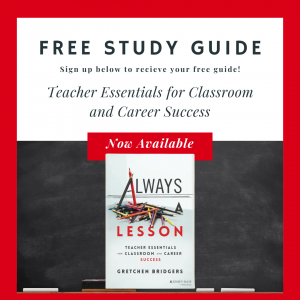Teacher Evaluation

Have you heard of ASCD? I receive their magazine “Educational Leadership” monthly. At the end of the magazine, there is a section called, “Tell Me About A Time…” where readers (just like us!) can write in on specific topics. So, of course, I did!
The topic was:
Tell about an evaluation experience that was frustrating or harmful to you. Why? How could this evaluation have been more useful?
Here was my entry:
A teacher evaluation is meant to be helpful for the teacher and the principal. The teacher receives feedback to better their instructional practices and the principal is able to select professional development based on teacher need, provide guidance and feedback, as well as keep good teachers while letting go of struggling ones.
As a beginning teacher, you are often evaluated. However, as you earn tenure, your principal pops in every now and again and the opportunity for feedback is far and few between. Regardless of level of experience, you can always seek out advice from your administration and academic facilitators to observe a lesson off the record.
In my career, principals have evaluated me in many ways, using a multitude of rubrics or tools. The most helpful were the ones that were specific and detailed. I realize this is time consuming, especially if a principal must evaluate numerous teachers at once.
The least helpful and often frustrating evaluation is one that is conducted without feedback, and is non-negotiable. Having a conversation with a teacher prior to or after an evaluation helps set the tone for success and progress towards school goals. A teacher and principal who are not on the same page and do not know how to communicate expectations are bound to be a bad pair. A principal needs to provide clear guidelines to all staff members so the expectations are clear. Once the evaluation is done, a conversation needs to occur to explain the process and findings. This allows the principal to provide specific feedback and provide suggestions for improvement. The teacher can then ask follow-up questions or offer comments to support their educational decisions in the classroom.
This respectful interaction ensures success of the students because the leaders of the school are on the same page and support one another to be their best self. I hope principals can take the time necessary to groom their teachers to become their best self, even if that means realizing a particular school is not a good fit. Have real, honest conversations and provide detailed feedback. It’s a Win-Win really. 🙂


 Get Edu-Tips, Freebies and grab your FREE Study Guide for Gretchen’s New Book!
Get Edu-Tips, Freebies and grab your FREE Study Guide for Gretchen’s New Book!